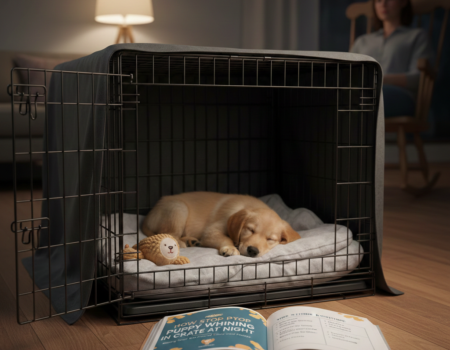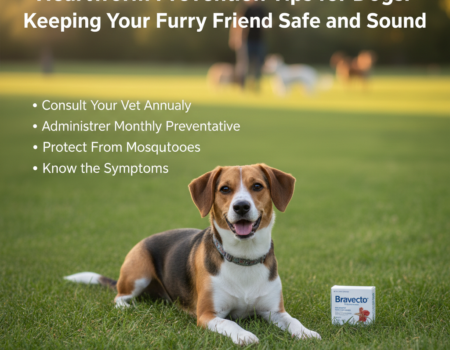Did you know that black French Bulldogs are one of the most sought-after colors in the French Bulldog breed?
French Bulldogs, known for their distinctive appearance with big bat ears and wrinkled faces, have captured the hearts of many dog lovers. However, it is the black coat that adds an extra touch of elegance and allure to these already charming canines.
In this guide, I will provide you with valuable information on caring for black French Bulldogs, their unique traits, and essential tips to ensure their well-being and happiness. Whether you are considering bringing home a black Frenchie puppy or already have a black French Bulldog companion, this guide will be your go-to resource.
So, let’s delve into the world of black French Bulldogs and discover everything you need to know about this captivating breed!
Key Takeaways:
- Black French Bulldogs are highly sought-after because of their unique and elegant coat color.
- This guide will provide you with valuable information on caring for black French Bulldogs.
- Discover the unique traits that make black French Bulldogs special.
- Learn essential tips to ensure the well-being and happiness of your black Frenchie.
- Whether you are considering getting a black Frenchie or already have one, this guide has you covered.
French Bulldog History
The French Bulldog has a fascinating history that dates back to its origins in England. Originating as a toy-size version of the Bulldog, this adorable breed became popular among lace makers in the mid-19th century. The lace makers from Nottingham, England, who migrated to France, brought these small Bulldogs with them.
In France, the French Bulldog quickly gained popularity and became a beloved companion for many. The breed’s distinctive appearance, including their bat-like ears and wrinkled face, captivated the hearts of not only the lace makers but also the French society.
In the late 1800s, French Bulldogs started to make their way across the Atlantic to the United States. Initially known as the “toy bulldog,” they soon caught the attention of Americans who appreciated their charm and unique characteristics.
The French Bulldog’s journey from England to France and then to the United States is a testament to their appeal and adaptability. The lace makers played a significant role in introducing this breed to the world.”
The breed’s popularity continued to grow in the United States, and in 1898, the American Kennel Club officially recognized the French Bulldog as a breed. This recognition further elevated the status of French Bulldogs and solidified their place in the hearts of dog lovers.
Over the years, French Bulldogs have become one of the top ten breeds in the United States, the United Kingdom, and Australia. Their distinctive appearance, playful temperament, and affectionate nature have captured the attention of people worldwide.
French Bulldog Characteristics
When it comes to physical appearance, French Bulldogs possess distinct features that set them apart. They are instantly recognizable with their large “bat-like” ears and a wrinkled face, reminiscent of their English Bulldog ancestors. Despite their small size, Frenchies have a sturdy and muscular body, exemplified by their stocky legs, muscled chests, and short thick tails. Their expressive eyes add to their charm, reflecting their playful and affectionate nature.
French Bulldogs typically weigh between 16 to 29 pounds and stand approximately 11 to 12 inches high at the shoulders. Despite their compact size, they exude a robust and muscular physique that is both endearing and visually striking. Their short, smooth coat adds to their appeal and comes in a variety of colors and patterns.
Insert a relevant quote, if available.
Overall, French Bulldogs are an embodiment of charm and charisma, with their unique physical characteristics contributing to their delightful and lovable nature.
| Characteristic | Description |
|---|---|
| Bat Ears | Large ears resembling those of a bat, sitting high on the head. |
| Wrinkled Face | Distinctive wrinkled facial folds inherited from their English Bulldog ancestors. |
| Small Size | Weighing between 16 to 29 pounds and standing 11 to 12 inches high at the shoulders. |
| Expressive Eyes | Eyes that depict their playful and affectionate nature. |
| Muscular Body | Sturdy and muscular physique, characterized by stocky legs and muscled chests. |
| Short Thick Tail | A short, thick tail that adds to their overall appearance. |
French Bulldog Temperament
The French Bulldog is known for its playful and quirky temperament, making it an excellent choice for families. Whether you have kids or not, these delightful dogs are sure to bring joy and laughter into your home. When properly socialized from a young age, French Bulldogs can get along well with other dogs and cats, making them a perfect addition to multi-pet households.
One of the standout qualities of Frenchies is their minimal barking. Unlike some other dog breeds, they are not prone to excessive vocalization. This makes them well-suited for apartment living and helps maintain a peaceful environment for both you and your neighbors.
French Bulldogs have minimal exercise requirements, which is another reason why they are popular among city dwellers. A short daily walk is usually sufficient to meet their exercise needs, making them a great choice for individuals with busy schedules or limited outdoor space.
When it comes to grooming, Frenchies require regular maintenance to keep them looking their best. Their short coat should be brushed regularly to remove loose hair, and their facial folds should be cleaned and dried to prevent any bacterial buildup. Additionally, their nails should be trimmed on a routine basis to ensure their comfort and overall well-being.
It’s important to note that French Bulldogs may experience separation anxiety when left alone for extended periods. They form strong bonds with their owners and thrive on human companionship. If you have a busy lifestyle or spend a lot of time away from home, make sure to provide your Frenchie with plenty of mental stimulation, toys, and a comfortable space to help alleviate separation anxiety.
French Bulldog Lifespan
The average lifespan of a French Bulldog is 11 to 13 years. As a responsible owner, I know that proper care and regular veterinary check-ups are crucial factors in ensuring the quality and length of my Frenchie’s life.
By providing a loving and nurturing environment, my furry friend can thrive and live a healthy and fulfilling life. This includes providing a balanced diet, regular exercise, and mental stimulation.
However, there are also several factors that can affect the lifespan of a French Bulldog. Genetic predispositions, such as breathing problems and hip dysplasia, can impact their overall health. Being aware of these potential issues and taking appropriate measures can help manage and minimize their impact.
One way to safeguard against unforeseen health issues is by considering pet insurance. Pet insurance can provide financial assistance for veterinary care, ensuring that my Frenchie receives the best possible treatment throughout their life.
It is important to note that the quality and length of a French Bulldog’s life also depend on the love and care they receive from their owner. Building a strong bond, providing regular exercise and mental stimulation, and offering a safe and comfortable home are all essential in ensuring a happy and healthy life for my beloved Frenchie.
French Bulldog Care Guide
Proper care for a French Bulldog includes various aspects that contribute to their overall well-being and happiness. As a responsible owner, it’s essential to prioritize their exercise and training, grooming requirements, diet and nutrition, as well as awareness of potential health issues. Let’s dive into each of these aspects in more detail:
Exercise and Training
Adequate exercise is crucial for keeping your French Bulldog healthy and preventing obesity. A short, daily walk is typically sufficient to meet their exercise needs. However, it’s important to be mindful of their brachycephalic nature and avoid strenuous activities in hot or humid weather. Additionally, providing proper training and early socialization will help your Frenchie develop good manners and behaviors. Positive reinforcement techniques and turning training sessions into fun and engaging activities can yield the best results.
Grooming Requirements
French Bulldogs have a short coat that requires regular brushing to remove loose hair and keep their skin healthy. Pay special attention to their facial folds, which may accumulate dirt or moisture and lead to skin irritation. Clean the folds gently using a damp cloth to prevent bacterial buildup. Additionally, regular nail trimming is necessary to avoid discomfort or difficulty in walking. Consulting a professional groomer can help you maintain your Frenchie’s coat and overall grooming needs effectively.
Diet and Nutrition
Proper diet and nutrition are vital for your French Bulldog’s overall health and weight management. Consult with your veterinarian to determine the appropriate type and amount of high-quality dog food based on their age, activity level, and specific nutritional requirements. Portion control is crucial to prevent overeating and obesity, as French Bulldogs are prone to weight gain. Avoid feeding your Frenchie table scraps or high-fat foods, and always provide fresh water for hydration.
Health Issues
While French Bulldogs are generally healthy dogs, they are prone to certain health issues that their owners should be aware of. Some common health concerns include respiratory issues, skin allergies, hip dysplasia, and eye conditions. Regular veterinary check-ups are important to monitor their well-being and address any potential health issues promptly. Reputable breeders often conduct genetic testing to minimize the risk of inherited diseases. Considering pet insurance can also provide financial assistance in covering the cost of veterinary care.
Where to Get a French Bulldog
If you’re interested in bringing a French Bulldog into your family, it’s crucial to choose the right source. Reputable breeders who prioritize the health and well-being of their breeding dogs will likely provide healthy and well-socialized puppies. Additionally, rescue organizations may have French Bulldogs available for adoption, offering an opportunity to provide a loving home to a dog in need. Whichever route you choose, ensure to thoroughly research and consider the credibility and reputation of the breeder or organization.
French Bulldog Exercise and Training
French Bulldogs have minimal exercise requirements, making them great companions for individuals with busy lifestyles. A short, daily walk is usually enough to fulfill their exercise needs and keep them happy and healthy. However, it’s important to note that Frenchies have a tendency to overheat quickly due to their short muzzles.
During hot weather, it’s crucial to be cautious and avoid excessive exercise or walking in the heat of the day. Keeping them hydrated and providing shaded areas for rest is essential. French Bulldogs thrive in moderate temperatures and should not be exposed to extreme heat or humidity for prolonged periods.
When it comes to training, French Bulldogs are known to be independent and sometimes stubborn. However, with the right approach and proper motivation, they can be effectively trained. It’s important to start training from a young age and focus on positive reinforcement techniques.
Turning training sessions into a game can help maintain their interest and keep them engaged. French Bulldogs respond well to treats, praise, and rewards, so incorporating these into the training process can be highly effective. Consistency, patience, and positive reinforcement are key to successful training.
Early socialization is also crucial for French Bulldogs to ensure they grow into well-behaved adults. Introducing them to various environments, people, and other animals from a young age will help them develop good social skills and a friendly demeanor. Engaging in puppy socialization classes or arranging playdates with other dogs can be beneficial.
Remember, each French Bulldog has their own unique personality, so it’s important to tailor the training approach to suit their individual needs. With proper exercise, training, and socialization, you can raise a well-behaved and happy adult Frenchie.
Key Points:
- French Bulldogs have minimal exercise requirements and a daily walk is usually sufficient.
- Be cautious of hot weather as Frenchies are prone to overheating.
- Start training from a young age and use positive reinforcement techniques.
- Make training sessions fun and engaging by turning them into games.
- Socialize your Frenchie early to ensure they grow into well-behaved adults.
French Bulldog Grooming Requirements
Proper grooming is an essential part of caring for your French Bulldog. While they have short coats that shed minimally, regular grooming helps maintain their coat health and overall well-being. Here are some important grooming tasks to keep in mind:
Brushing:
To promote the growth of new hair and distribute skin oils, it’s important to brush your Frenchie’s coat regularly. Use a soft-bristle brush or rubber grooming mitt to remove loose hair and keep their coat looking its best.
Facial Folds:
French Bulldogs have adorable facial folds that require special attention. These folds can collect dirt, moisture, and bacteria, leading to skin irritation and infections. Clean their facial folds carefully with a damp cloth and ensure they are dry to prevent any issues.
Nail Trimming:
Trimming your Frenchie’s nails on a regular basis is essential to keep them comfortable and prevent painful overgrowth. Use a nail clipper designed for dogs and be cautious not to cut into the quick, which can cause bleeding and discomfort. If you’re unsure, consult a professional groomer or veterinarian for assistance.
Other Grooming Tasks:
In addition to regular brushing and facial fold cleaning, there are a few other grooming tasks to consider. Keep an eye on your Frenchie’s ears and clean them when necessary to prevent infections. Brush their teeth regularly to maintain good oral hygiene. Finally, give your Frenchie a bath as needed, using a gentle dog shampoo that won’t dry out their skin.
Overall, French Bulldogs have relatively low grooming requirements compared to some other breeds. However, maintaining a regular grooming routine will help keep your Frenchie looking and feeling their best.
| Grooming Task | Frequency |
|---|---|
| Brushing | 2-3 times a week |
| Facial Fold Cleaning | Daily |
| Nail Trimming | Every 2-4 weeks |
| Ear Cleaning | Regularly, as needed |
| Teeth Brushing | Daily |
| Bathing | As needed, typically every 4-6 weeks |
French Bulldog Diet and Nutrition
When it comes to French Bulldog care, a proper diet and nutrition plan is essential for their overall health and well-being. French Bulldogs are prone to obesity, so it’s crucial to implement portion control to prevent weight gain and related health issues. Providing a balanced diet is key, ensuring it consists of high-quality dog food that is appropriate for their age and size.
Consulting with a veterinarian can help determine the specific dietary needs of your French Bulldog, including the appropriate amount of food and the right kind of nutrients they require. A veterinarian will consider factors such as their age, activity level, and any underlying health conditions to create a personalized dietary plan.
Portion Control and Calorie Intake
French Bulldogs have a tendency to overeat, which can lead to excessive weight gain. To maintain a healthy weight, it’s important to control their portion sizes and monitor their calorie intake. Feeding your Frenchie appropriate amounts of food based on their weight and age will help prevent obesity and associated health problems.
Remember, it’s always better to follow portion guidelines recommended by a veterinarian rather than relying on general feeding instructions found on dog food packaging.
Choosing High-Quality Dog Food
Opting for high-quality dog food is crucial for the overall health and well-being of your French Bulldog. Look for dog food brands that contain high-quality protein sources and essential nutrients like vitamins and minerals. Avoid foods that contain fillers, artificial preservatives, and excessive amounts of carbohydrates, as these can contribute to weight gain and digestive issues.
Fresh Water and Treats Moderation
In addition to a balanced diet, remember to provide your French Bulldog with access to fresh and clean water at all times. Proper hydration is essential for their overall health and helps support proper digestion.
While occasional treats can be a part of your Frenchie’s diet, it’s important to practice moderation. Treats should not exceed more than 10% of their daily calorie intake and should be low in fat and sugar. High-fat foods and table scraps should be avoided altogether, as they can lead to weight gain and other health complications.
Tips for a Well-Balanced Diet:
- Consult with a veterinarian to determine the appropriate amount and type of food for your French Bulldog.
- Choose a high-quality dog food brand that meets their nutritional needs.
- Control portion sizes to prevent obesity and weight gain.
- Ensure fresh and clean water is always available.
- Practice moderation when giving treats, and opt for low-fat, low-sugar options.
| Diet and Nutrition Dos | Diet and Nutrition Don’ts |
|---|---|
|
|
French Bulldog Health Issues
French Bulldogs are adorable and lovable companions, but they are prone to certain health issues that owners should be aware of. Their unique physical characteristics and genetic makeup make them more susceptible to the following conditions:
1. Respiratory Issues
One of the most common health issues in French Bulldogs is respiratory problems. Their flat faces and short muzzles, known as brachycephalic features, can cause difficulties in breathing, especially in hot or humid weather. It’s important to monitor your Frenchie’s breathing and provide a cool and well-ventilated environment to prevent any respiratory distress.
2. Skin Allergies
French Bulldogs are also prone to skin allergies. They may experience itchiness, rashes, or redness due to various allergens such as certain foods, environmental factors, or even flea bites. Regular grooming, using hypoallergenic products, and maintaining a healthy diet can help manage skin allergies in Frenchies.
3. Hip Dysplasia
Hip dysplasia is a condition characterized by the malformation of the hip joints. It can cause pain, lameness, and difficulty in walking or climbing stairs. French Bulldogs, like many other small and medium-sized breeds, can be prone to this condition. Regular exercise, a balanced diet, and avoiding excessive jumping or strenuous activities can help reduce the risk of hip dysplasia.
4. Eye Conditions
French Bulldogs are also susceptible to various eye conditions. Cataracts, entropion (inward rolling of the eyelids), and cherry eye (prolapse of the gland of the third eyelid) are among the common eye problems that Frenchies may face. Regular check-ups with an ophthalmologist and appropriate treatment can help manage these issues and maintain your Frenchie’s eye health.
5. Genetic Testing and Reputable Breeders
To minimize the risk of inherited diseases and health issues, it’s important to choose a reputable breeder who performs health screenings on their breeding dogs. Genetic testing can be conducted to identify potential genetic disorders and make informed breeding decisions. By selecting a responsible breeder, you can reduce the likelihood of your French Bulldog inheriting certain health conditions.
6. Pet Insurance
Considering pet insurance is a wise decision when it comes to the health and well-being of your French Bulldog. It can help cover the cost of veterinary care, including treatments for respiratory issues, skin allergies, hip dysplasia, and eye conditions. Having pet insurance gives you peace of mind knowing that you can provide the necessary medical attention for your Frenchie without financial burden.
Where to Get a French Bulldog
If you are interested in getting a French Bulldog, there are a few options to consider. One option is to choose a reputable breeder who specializes in French Bulldogs. Reputable breeders ensure the well-being of their breeding dogs and often perform health screenings to minimize the risk of genetic health issues. They can provide you with a healthy and well-socialized French Bulldog puppy that meets your preferences.
Another option is to adopt a French Bulldog from a rescue organization. Rescue organizations often have French Bulldogs available for adoption, giving you the chance to provide a loving home to a dog in need. Adopting a rescue dog can be a rewarding experience and you can make a positive impact on their life.
When adopting or purchasing a French Bulldog, it’s important to go through a proper adoption or purchasing process. This includes completing necessary paperwork, paying adoption or purchase fees, and potentially undergoing an application process to ensure that you are a suitable owner for a French Bulldog.
Once you bring your French Bulldog home, it is essential to schedule a veterinary check-up. A veterinary check-up will ensure that your Frenchie is healthy and up-to-date on vaccinations. Your veterinarian will also provide you with guidance on any necessary treatments, preventive measures, and ongoing care for your new furry friend.
Conclusion
The black French Bulldog is a unique and striking breed with a playful and affectionate temperament. These adorable little dogs require proper care and attention to ensure their health and well-being. Whether it’s providing them with regular exercise and training, or maintaining their grooming and diet, creating a balanced and loving environment is essential.
It’s important to be aware of the potential health issues that can affect French Bulldogs and take necessary precautions. When deciding to bring a French Bulldog into your life, choose a reputable breeder or rescue organization to ensure you are getting a healthy and well-cared-for furry friend.
With the right care and love, your black Frenchie can bring immense joy and companionship to your life for many years. They have a special way of melting hearts with their adorable expressions and playful antics. So, take the time to provide the care and attention they deserve, and you’ll be rewarded with a loyal and loving companion who will bring happiness to your life every day.
FAQ
What is a black French Bulldog?
A black French Bulldog is a French Bulldog that has a black coat color. They have the same characteristics and traits as other French Bulldogs, but their coat color is black.
Are black coat French Bulldogs rare?
Black coat French Bulldogs are not considered rare, as they are one of the many color variations within the French Bulldog breed. They are just as popular and common as other color variations.
How can I find a black French Bulldog puppy?
To find a black French Bulldog puppy, you can search for reputable breeders who specialize in French Bulldogs. You can also consider adopting from rescue organizations or shelters that may have black French Bulldogs available for adoption.
Are there any famous black French Bulldogs?
Yes, there are several famous black French Bulldogs. Some notable examples include Manny the Frenchie, who is known for his large social media following, and Junior the French Bulldog, who gained popularity through his skateboarding videos.
What is the temperament of a black French Bulldog?
Black French Bulldogs have a playful and quirky temperament. They are known for being affectionate, friendly, and good with children and other pets if properly socialized. However, individual temperament can vary, so it’s important to spend time with the specific dog to assess their personality.










No Comment! Be the first one.